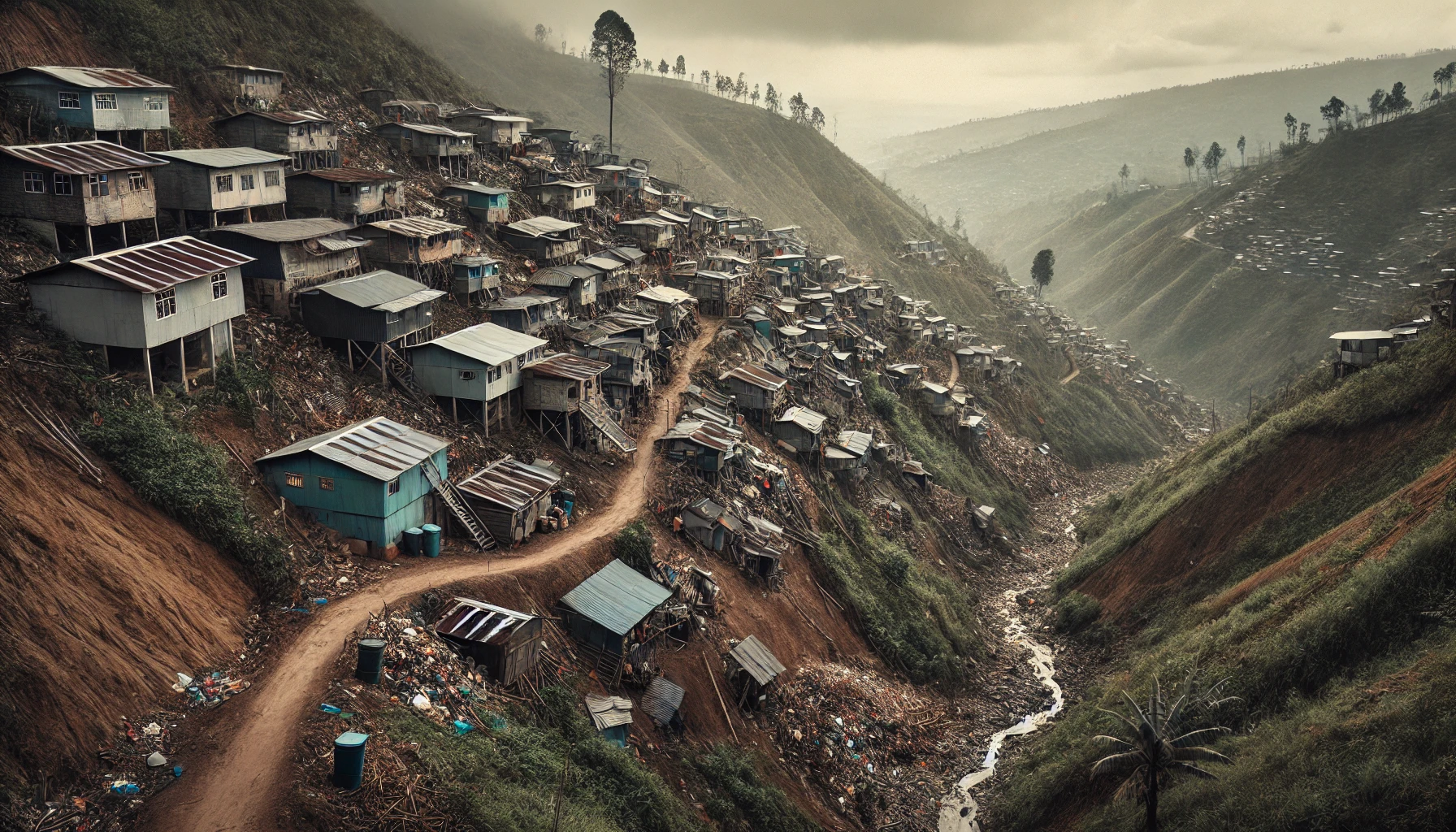Bridging Science and Tradition: A New Approach to Landslide Disaster Management in Indonesia
A study by Radboud University and Open Universiteit highlights the critical role of local knowledge in reducing landslide risks in Manado, Indonesia, emphasizing the need to integrate local insights with scientific approaches, particularly in informal settlements with inadequate solid waste management. The research advocates for a holistic disaster management strategy that considers both anthropogenic and natural factors.

A recent study conducted by researchers from Radboud University and Open Universiteit explores the significance of local knowledge (LK) in disaster risk reduction (DRR) within urban informal settlements, focusing on a landslide-prone area in Manado, Indonesia. The study delves into how integrating LK with scientific approaches can enhance disaster preparedness, particularly in regions where landslides are a frequent hazard due to steep terrain and adverse climatic conditions. By employing qualitative methods such as household interviews, transect walks, and ethnographic observation, the researchers gathered insights from residents living in vulnerable areas of Manado. Their findings reveal that anthropogenic factors, particularly inadequate solid waste management (SWM), significantly contribute to the risk of landslides in these areas. Despite the recognition of LK's importance in disaster preparedness, the study argues that current scientific classifications, like the Varnes classification of landslide risk, tend to focus on natural and geological factors while often overlooking the human-induced risks that are particularly relevant in informal settlements.
Manado’s Steep Terrain: A Catalyst for Landslides
Manado, characterized by its steep topography and heavy rainfall, presents a high risk for landslides, especially in informal settlements where housing is often constructed on unstable slopes. The researchers found that inadequate SWM exacerbates landslide risks by altering water flow patterns, increasing soil instability, and adding physical load on the slopes. This issue is particularly acute in low-income neighborhoods where access to government services, such as waste collection and proper drainage, is limited or nonexistent. Residents in these areas, who often build their homes with poor quality materials on steep hillsides, are acutely aware of the risks they face. Many have developed coping strategies, such as re-planting vegetation to stabilize the soil or constructing makeshift retaining walls using sandbags. However, these local adaptations are often insufficient in the face of the escalating risk, particularly as climate change leads to more unpredictable and severe weather patterns.
The Gap Between Scientific Knowledge and Lived Experience
The study highlights the gap between the scientific understanding of landslide risks and the lived experiences of those most vulnerable to these disasters. While scientific classifications provide a general framework for understanding landslide risk, they do not always account for the specific conditions and challenges faced by residents of informal settlements. For instance, the study found that in many cases, solid waste is deposited on slopes, blocking drainage systems and increasing the likelihood of landslides during heavy rainfall. This issue is compounded by the lack of access to proper waste disposal services, which forces residents to either burn their waste or dispose of it in unsafe locations. The accumulation of waste on unstable slopes not only increases the physical load on these areas but also disrupts the natural water drainage, further destabilizing the soil.
Socio-Economic Factors Deepen Vulnerability
In addition to highlighting the role of SWM in exacerbating landslide risks, the study also sheds light on the broader socio-economic and political factors that contribute to vulnerability in these communities. Many residents of the informal settlements in Manado lack legal land tenure, which not only limits their access to government assistance but also disincentivizes them from investing in more permanent and safer housing solutions. The government's response to landslide risks in these areas has been largely reactive, focusing on post-disaster recovery rather than on prevention and mitigation. This approach leaves residents in a precarious position, where they must rely on their limited resources and knowledge to protect themselves from future disasters.
Integrating Local Knowledge for Effective Risk Reduction
The study advocates for a more integrated approach to DRR that incorporates both scientific knowledge and LK. It calls for updating existing landslide classifications to better account for anthropogenic factors and for more systematic research into the interactions between SWM and landslide risk. Additionally, the researchers recommend involving local communities more actively in DRR efforts, recognizing that residents possess valuable knowledge about their environment that can inform more effective risk reduction strategies. Practical solutions could include developing affordable and locally adapted SWM systems that are tailored to the specific needs of informal settlements. Such systems would not only reduce the physical risk of landslides but also improve overall living conditions in these vulnerable areas.
A Holistic Approach to Urban Disaster Management
Ultimately, the study underscores the need for a holistic approach to urban planning and disaster management that addresses both infrastructural deficiencies and environmental hazards in informal settlements. By integrating LK with scientific research, policymakers and planners can develop more contextually relevant strategies for reducing disaster risks. This approach not only enhances the resilience of vulnerable communities but also empowers residents by acknowledging their agency and expertise in managing the risks they face. The findings of this study highlight the importance of considering the complex interplay of social, economic, and environmental factors in disaster risk reduction, particularly in rapidly urbanizing areas of the Global South.
- READ MORE ON:
- disaster risk reduction
- solid waste management
- SWM
- DRR
- disaster risks
- Manado
- FIRST PUBLISHED IN:
- Devdiscourse










